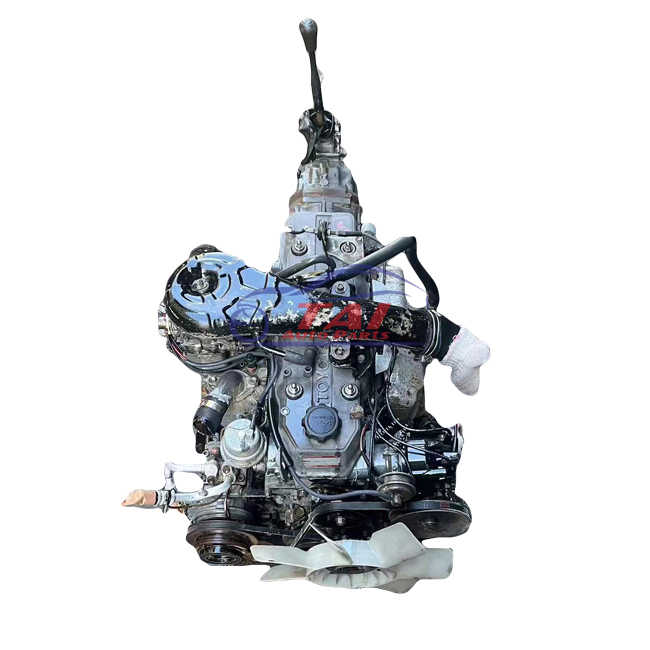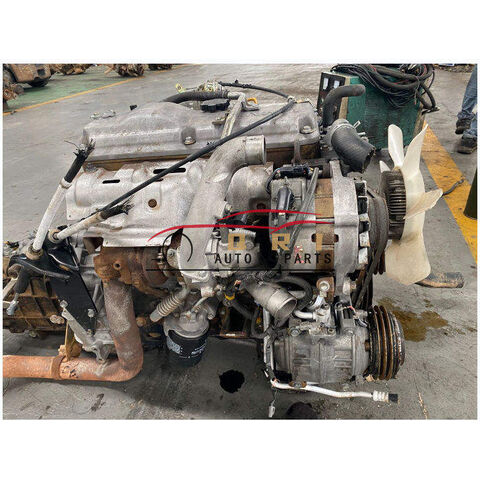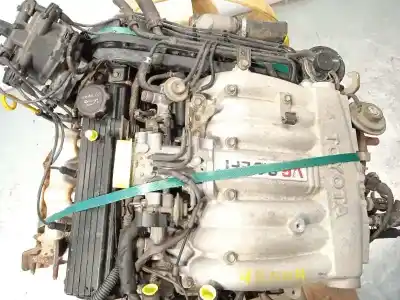Toyota RunX RSI: A Blend of Design, Efficiency, and Integrity
Toyota RunX RSI: A Blend of Design, Efficiency, and Integrity
Blog Article
Explore Quality and Value: Your Guide to Buying a Pre-owned Engine
When thinking about the acquisition of a second-hand engine, recognizing the elaborate equilibrium between quality and value is extremely important. A comprehensive evaluation of engine history, condition, and reliability is necessary to make sure an audio financial investment. By conducting proper assessments and study, possible purchasers can browse the complexities of the marketplace better. Nevertheless, the nuances of service warranty choices and prices techniques can substantially influence the overall decision-making procedure. As you contemplate these variables, one concern stays: what certain aspects will inevitably lead your selection in this important financial investment?
Comprehending Engine Kind
When taking into consideration the purchase of a pre-owned engine, comprehension of the numerous engine types is vital for making an informed choice. Engines can normally be classified into 2 primary kinds: internal combustion engines and electrical engines. Internal combustion engines, that include gasoline and diesel variants, depend on the combustion of gas to create power. Gasoline engines are commonly lighter and rev higher, making them ideal for performance lorries, while diesel engines are renowned for their torque and fuel efficiency, usually favored in durable applications.
On the other hand, electrical engines make use of electrical power saved in batteries to power the vehicle, providing a cleaner choice with less relocating components and reduced maintenance requirements. Within these classifications, there are further distinctions, such as four-stroke versus two-stroke interior burning engines, and various electric motor arrangements.
Comprehending these distinctions is important, as they influence efficiency, compatibility with existing lorry systems, and long-lasting operational expenses. By acquainting oneself with the different kinds of engines offered, potential customers can much better analyze their requirements and choose that align with their car's requirements and their individual choices.

Assessing Engine Condition
A complete examination of engine condition is vital for any individual taking into consideration the purchase of a pre-owned engine. Begin with a visual assessment; check for signs of oil leaks, corrosion, or any type of physical damages to the engine block. A tidy engine is usually indicative of great maintenance practices, while too much grime may recommend overlook.
Following, examine the engine's elements, consisting of the timing belt, gaskets, and seals. Try to find deterioration, as these parts can be costly to replace. In addition, take a look at the engine mounts, as harmed places may result in vibrations and more mechanical problems.
A compression test is important to gauge interior engine health. Consistent compression throughout all cylinders shows a well-kept engine, whereas substantial discrepancies might direct to internal damage or wear.
Listening to the engine throughout a start-up can supply beneficial insights; any uncommon sounds, such as rattling or knocking, may recommend much deeper concerns. If feasible, request an examination run to assess efficiency under lots. By thoroughly assessing these aspects, possible purchasers can make informed decisions and safeguard a top quality used engine.
Checking Engine Background
Recognizing the engine's history is crucial for making a well-informed acquisition. Understanding of previous use, maintenance records, and any type of previous problems can substantially affect the engine's reliability and long life. Begin by asking for the car recognition number (VIN) or engine identification number, which permits you website link to trace the engine's background.
Use readily available resources, such as Carfax or AutoCheck, to acquire a lorry background record. This record will provide vital understandings, consisting of crash history, solution documents, and previous ownership details. Toyota RunX RSI. Pay specific interest to any type of indications of serious damages or duplicated fixings, which might show underlying concerns
Ask about upkeep regimens done on the engine. Regular oil changes, timing belt replacements, and other precautionary procedures show accountable ownership. In addition, ask if the engine has actually gone through any type of adjustments, as non-standard changes can influence efficiency and compatibility with your automobile.
Lastly, when possible, look for verification from a trusted auto mechanic who can assess the engine's problem based upon its background (Toyota RunX RSI). This detailed examination will assist you prevent potential challenges and make sure that your investment is worthwhile and go now audio
Warranty and Return Plans
Acquiring a used engine commonly comes with varying guarantee and return policies that can considerably influence your choice. When thinking about a used engine, it is essential to completely assess the warranty options given by the seller.

Moreover, reliable sellers typically supply documents that lays out the service warranty and return procedure, ensuring transparency. Always ask for this information before finalizing your purchase. A well-defined warranty and return plan can provide assurance and protect your financial investment, making it an integral component of the decision-making procedure when acquiring a used engine.
Locating the most effective Bargains
When looking for the most effective bargains on a pre-owned engine, it is vital to carry out extensive research study and compare prices from various vendors. Beginning by checking out online industries, vehicle online forums, and neighborhood salvage backyards to gather a detailed understanding of the market. Utilizing cost comparison devices can enhance this process, highlighting affordable rates across various systems.

Consider timing your acquisition purposefully. Seasonal changes popular can affect prices, with certain times of the year supplying much better bargains. In addition, be open to bargaining prices; several sellers may want to decrease their asking price, particularly if the engine has been noted for an extensive period.
Final Thought
In summary, buying a used engine necessitates a comprehensive analysis of top quality and value. Reviewing engine condition with examinations and evaluations, validating its background, and comprehending service warranty and return policies are vital steps. Additionally, comparing costs throughout different sellers makes certain the very best financial decision. By sticking to these standards, customers can boost their chances of getting a trusted engine that meets their needs while preventing potential challenges connected with second-hand purchases.
When considering the acquisition of a used engine, understanding of the various engine kinds is necessary for making an educated choice. Engines can typically be classified right into two major types: interior combustion engines and electrical engines. Gasoline engines are usually lighter and rev higher, making them suitable for efficiency vehicles, while diesel engines are renowned for their torque and fuel effectiveness, commonly favored in heavy-duty applications.
A comprehensive assessment of engine problem is paramount for any person taking into consideration the acquisition of a second-hand engine. Begin by asking for the car identification number (VIN) or engine serial number, which permits you to map the engine's history.
Report this page